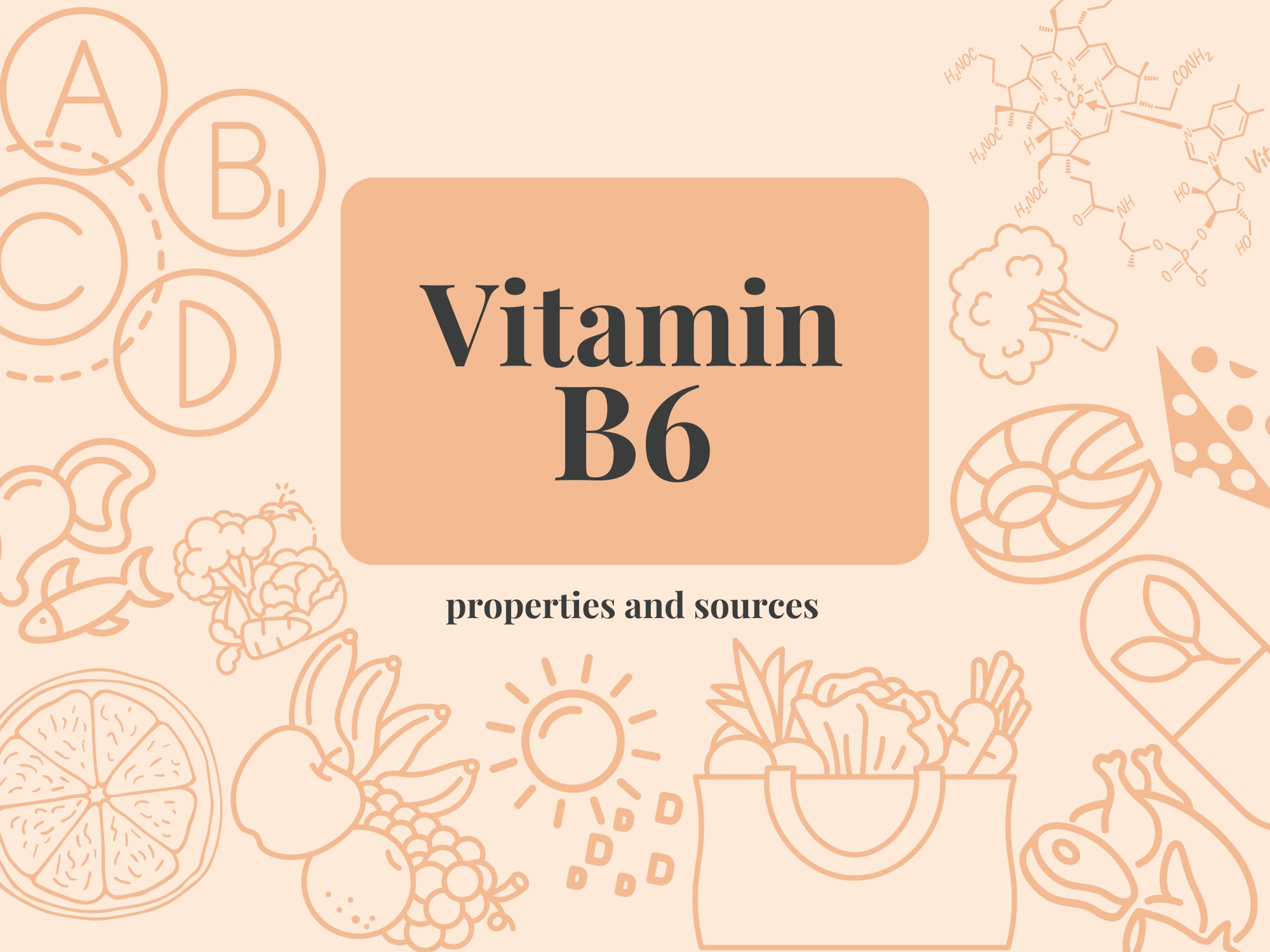
Vitamin B6 – properties, sources and dosage
Vitamin B6 is a substance with numerous properties. What are the effects of Vitamin B6? How can you recognize its deficiency or excess? What are the best sources of Vitamin B6?
Vitamin B6, also known as pyridoxine, is essential for the proper functioning of the body. It is responsible for the proper functioning of the nervous system, regulating blood pressure and boosting the immune system. What other functions does Vitamin B6 perform? How can you identify the symptoms and effects of a Vitamin B6 deficiency or excess? In which foods can it be found? Find out!
What are the most important properties of vitamin B6?
- Participates in the synthesis of hemoglobin, hormones, enzymes, and other compounds necessary for the proper functioning of the nervous system and immune response.
- Involved in the metabolism of proteins, amino acids, and fatty acids.
- Regulates blood pressure.Strengthens the immune system.
The recommended daily allowance of Vitamin B6 for adult women is 1.3 mg (1.9 mg for pregnant women, 2 mg for breastfeeding women), and 1.5 mg for women over 50. For adult men, the recommended daily allowance is 1.3 mg, and 1.7 mg for men over 50. Typically, a proper diet provides sufficient amounts of Vitamin B6, so deficiencies are rare. The demand for Vitamin B6 increases with the consumption of protein-rich foods.
What are the best sources of vitamin B6?
- Buckwheat
- Meat
- Potatoes
- Red bell pepper
- Cabbage
- Spinach
- Wheat germ
- Whole grain products
- Yeast
- Avocado
- Beans
- Green peas
- Bananas
- Dairy products
- Eggs
- Wheat bran
- Wheat germ
- Soybeans
- White beans
- Salmon
- Mackerel
- Pork liver
- Beef liver
- Broccoli
- Strawberries
- Apricots
- Semolina
A lot of Vitamin B6 is found in vegetables. However, freezing can reduce its content by 15-70%.

What are the effects and symptoms of vitamin B6 deficiency?
- Dandruff
- Insomnia
- Nerve inflammation
- Lower resistance to infections
- Nausea
- Dryness and cracking of hands and heels
- Improper functioning of the heart muscle
- Potential development of atherosclerosis
- Psychological problems
What are the effects and symptoms of excess vitamin B6?
- Tingling of limbs
- Increased feeling of cold
- Lack of muscle coordination
- Degeneration of nerve tissue
Vitamin B6 is essential for the proper functioning of the body. It is part of the B vitamin group, which primarily benefits the nervous system and skin.
Our website is a dietary blog where we post daily:
– nutritional advice
– breakfast recipes
– lunch recipes
– dinner recipes
– snack recipes
– dessert recipes
Related topics – post: vitamin b6 benefits, vitamin b6 deficiency symptoms, vitamin b6 uses, vitamin b6 properties, what is vitamin b6 good for, vitamin b6 sources, pyridoxine properties, pyridoxine benefits and uses
Related topics – blog: dietary recipes, fit recipes, healthy recipes, dietary recipe blog, fit recipe blog, healthy diet recipes, healthy snacks, recipes with pictures, recipes with caloric content, recipes with macronutrients, free meal plan, online diet, online diet cost
